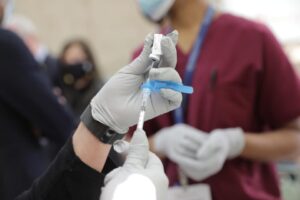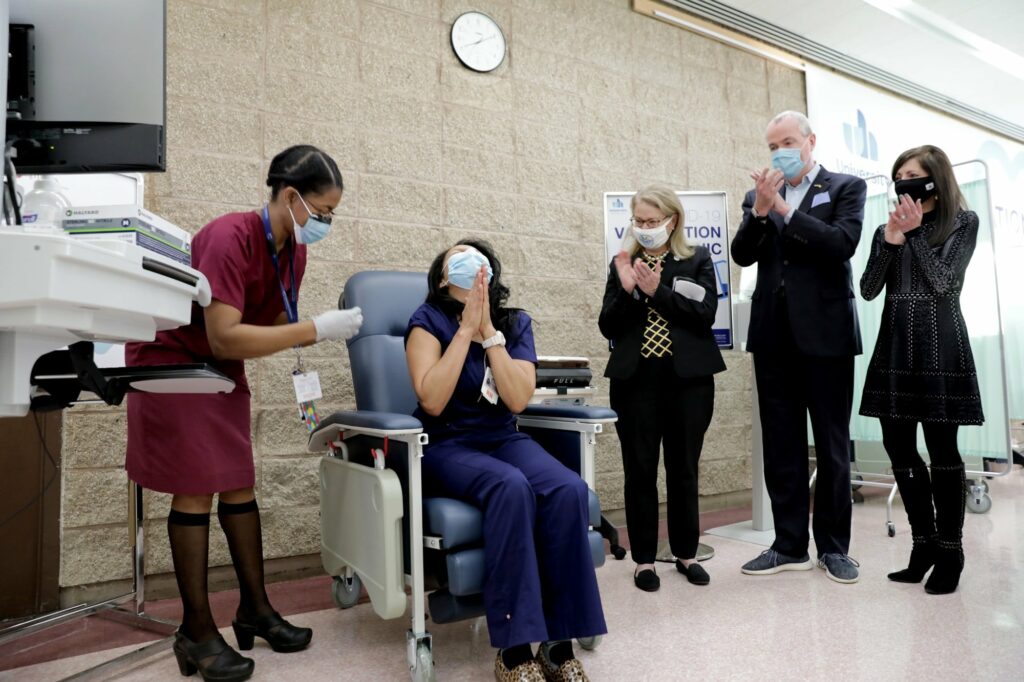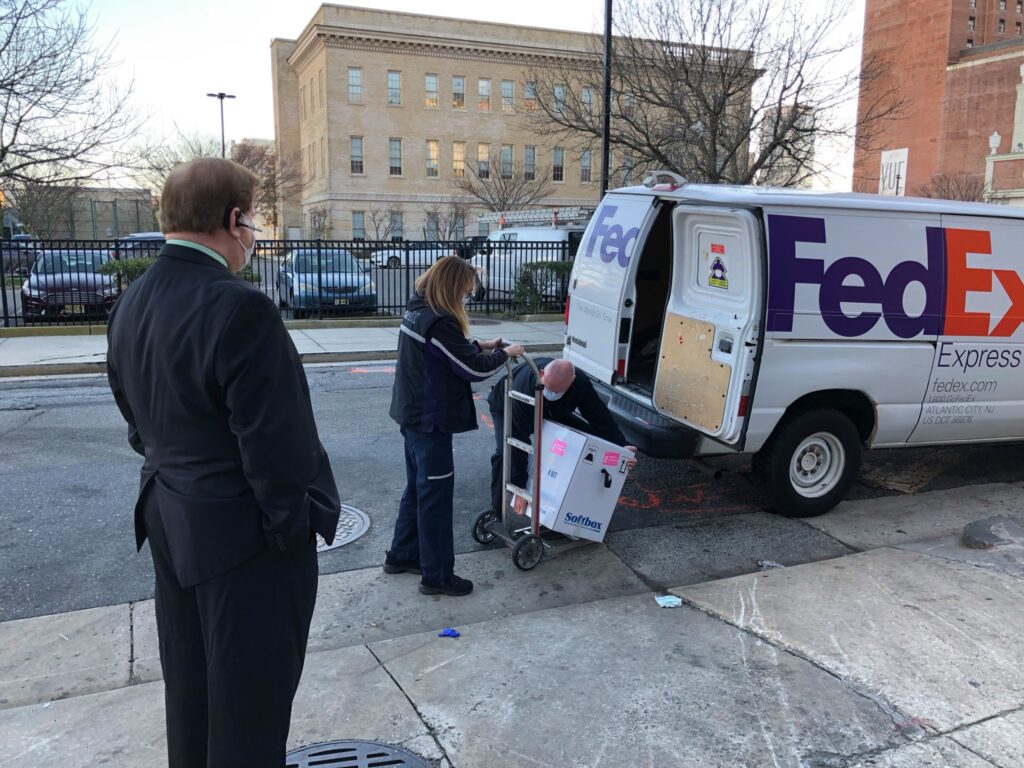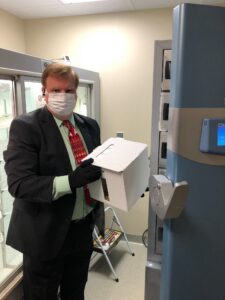AtlantiCare vaccinated 55 frontline healthcare workers at its Atlantic City campus.
Gov. Phil Murphy and Health Commissioner Judith Persichilli today joined University Hospital President and CEO Dr. Shereef Elnahal, and Rutgers New Jersey Medical School Dean Dr. Robert Johnson at University Hospital's Vaccine Clinic at Rutgers New Jersey Medical School to mark the historic beginning of New Jersey's vaccination effort and witness the administration of the first COVID-19 vaccinations to the state's frontline health care workers.
This is a day that we have been waiting nearly a year for, and while we know this isn't the end, we are witnessing, at the least, a glimmer of hope at the end of the tunnel, Murphy said. Without question, we are still in for several hard months and we are going to face stiff headwinds from this second wave, but now our heroic frontline health care workers can begin to take care of their fellow New Jerseyans with a higher degree of confidence in their own protection.
 New Jersey started vaccinating front line health care workers against COVID-19 Tuesday, Dec. 15
New Jersey started vaccinating front line health care workers against COVID-19 Tuesday, Dec. 15
Availability of a COVID-19 vaccine within the same year as the epidemic began is a huge scientific achievement, which can help us contain this virus and save lives, Persichilli said. We are thankful for our hospitals who serve communities around the state for volunteering to provide equitable and efficient access to vaccines to our valued healthcare workforce.
 Maritza Beniquez, an Emergency Department nurse at University Hospital, was the first person in New Jersey to get vaccinated.
Maritza Beniquez, an Emergency Department nurse at University Hospital, was the first person in New Jersey to get vaccinated.
Maritza Beniquez, an Emergency Department nurse at University Hospital, who has risked her life on the front lines of the fight against COVID-19, was the first person in New Jersey to get vaccinated.
AtlantiCare Regional Medical Center Atlantic City administered 55 vaccines to team members and encouraged other health care workers to get their vaccination.
 AtlantiCare receives a shipment of COVID-19 vaccine.
AtlantiCare receives a shipment of COVID-19 vaccine.
Throughout the pandemic, our team has continued to focus on keeping our patients, staff and community safe, AtlantiCare President and CEO Lori Herndon said. Getting vaccinated is an important step in ending the far-reaching impacts of COVID-19 we've experienced. As leaders within our healthcare community, our team is proud to begin administering and receiving the vaccine. I am grateful for their unwavering dedication and commitment, for the collaboration with our colleagues and partners across the state, and for all those who entrust us with their care.
 AtlantiCare gets ready to vaccinate frontline healthcare workers.
AtlantiCare gets ready to vaccinate frontline healthcare workers.
The federal government allocated 76,050 first doses to New Jersey for the first tranche of the Pfizer-BioNTech vaccine, which began arriving at acute care hospitals Monday morning.
New Jersey will roll out COVID-19 vaccines step-by-step to serve all adults who live, work, or are being educated in the state. Phasing will ensure that limited vaccines are distributed in a fair and equitable manner.
Phase 1A of the plan, which captures approximately 650,000 people, includes healthcare workers who are paid and unpaid persons serving in healthcare settings who have the potential for direct or indirect exposure to patients or infectious materials. Acute care hospital workers at highest risk of exposure to COVID-19 will be the first to receive the vaccine.
Six acute care hospitals across the state - AtlantiCare Regional Medical Center, Cooper University Hospital, Hackensack University Medical Center, Morristown Medical Center, Robert Wood Johnson University Hospital and University Hospital- are receiving doses of the Pfizer-BioNTech vaccine this week. By the end of the week, vaccines should be available at an additional 47 acute care hospitals that can manage the Pfizer-BioNTech vaccine, which requires ultra-cold chain storage.
While acute care hospitals will be the only points of dispensing during the first week of vaccine availability, the network will expand to additional sites such as Federally Qualified Health Centers, local health departments, county sites, urgent care clinics, and pharmacies in December, pending vaccine availability.